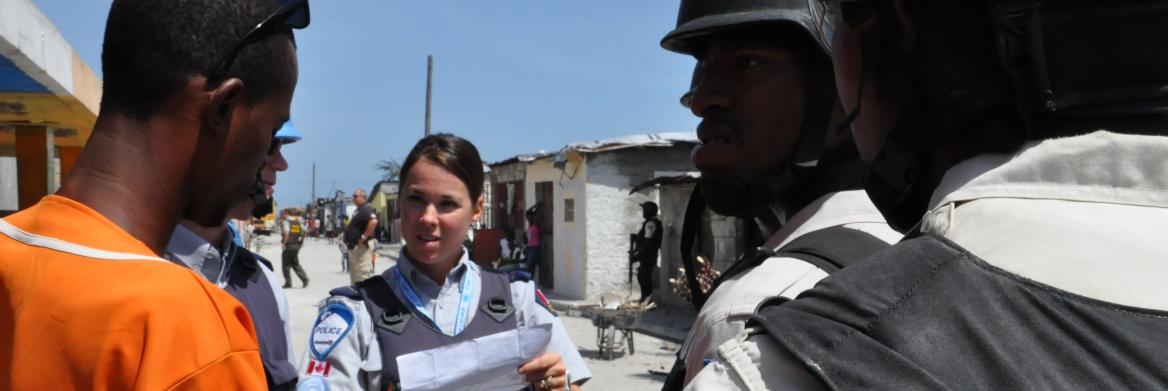To some, posting Canadian police officers in other countries might seem like an inefficient use of resources. Why send well-trained officers away when criminal activity persists in our own backyard?
But the reality is, it's highly effective. The more partnerships police foster, the better able they are to curb criminal activity both at home and abroad.
Take, for example, Deidre Seiden's cover story about the key role that RCMP liaison officers (LOs) play overseas. This recently expanded team of police officers may well be Canada's premiere problem solvers. Posted around the world, LOs work alongside their policing counterparts in other countries to support investigations with Canadian elements and investigations right here in Canada. To succeed, LOs need to make the right connections and build trust.
This kind of work takes patience and involves give and take. Sigrid Forberg writes about the RCMP's international capacity-building program, an initiative that supports partner agencies that have a need for training or equipment. Helping other agencies get the tools and skills they require pays off for everyone.
Putting the right people in the right place is equally important. As part of a new specialized skills approach, Norwegian and Canadian police officers, including the RCMP, are training officers in Haiti on how to handle domestic violence and sexual assault cases against women and children. This concentrated approach is showing such impressive results that more specialized teams are now being developed.
We also look at which skills and attributes are desirable for police officers who are considering overseas work. Solid investigational skills are a must-have, but strong interpersonal abilities are needed for partnerships to thrive.
Good collaboration can make or break a case. Sgt. Ron Bieg of the Vancouver Police Department describes how reaching out to international agencies and experts helped secure key evidence that led to the first successful prosecution under Canada's child sex tourism legislation. It's the kind of outreach that separates the good investigators from the great.
Our cover section also includes a Q&A with journalist Terry Gould about his well-researched book on the work of Canadian civilian police trainers, and a contribution from the Salvation Army, an organization that relies on its trusted relationships with police to help vulnerable communities around the globe.
When police partnerships are nurtured, in Canada and abroad, outstanding things can happen.
MarCom Award winner
Gazette magazine has been named a Gold winner of the 2014 MarCom Awards in the category of Magazine/Government for its issue on finding solutions to real-world problems (Vol. 75, No. 4, 2013).
MarCom Awards is an international competition that recognizes exceptional achievement by communications professionals for excellence in quality, creativity and resourcefulness. As a Gold Award recipient, Gazette magazine was judged to have exceeded the industry standards for excellence in the 2014 competition.
